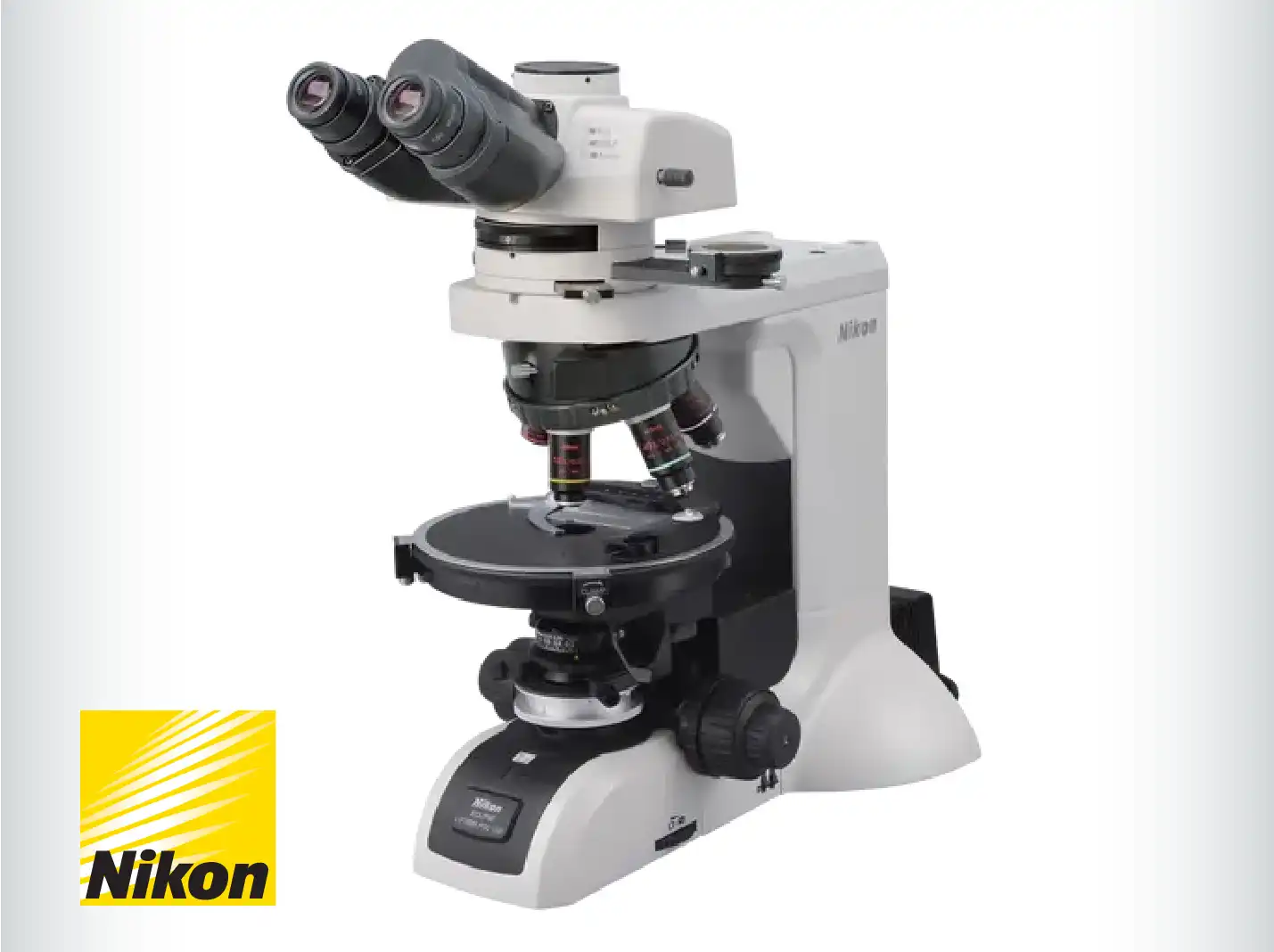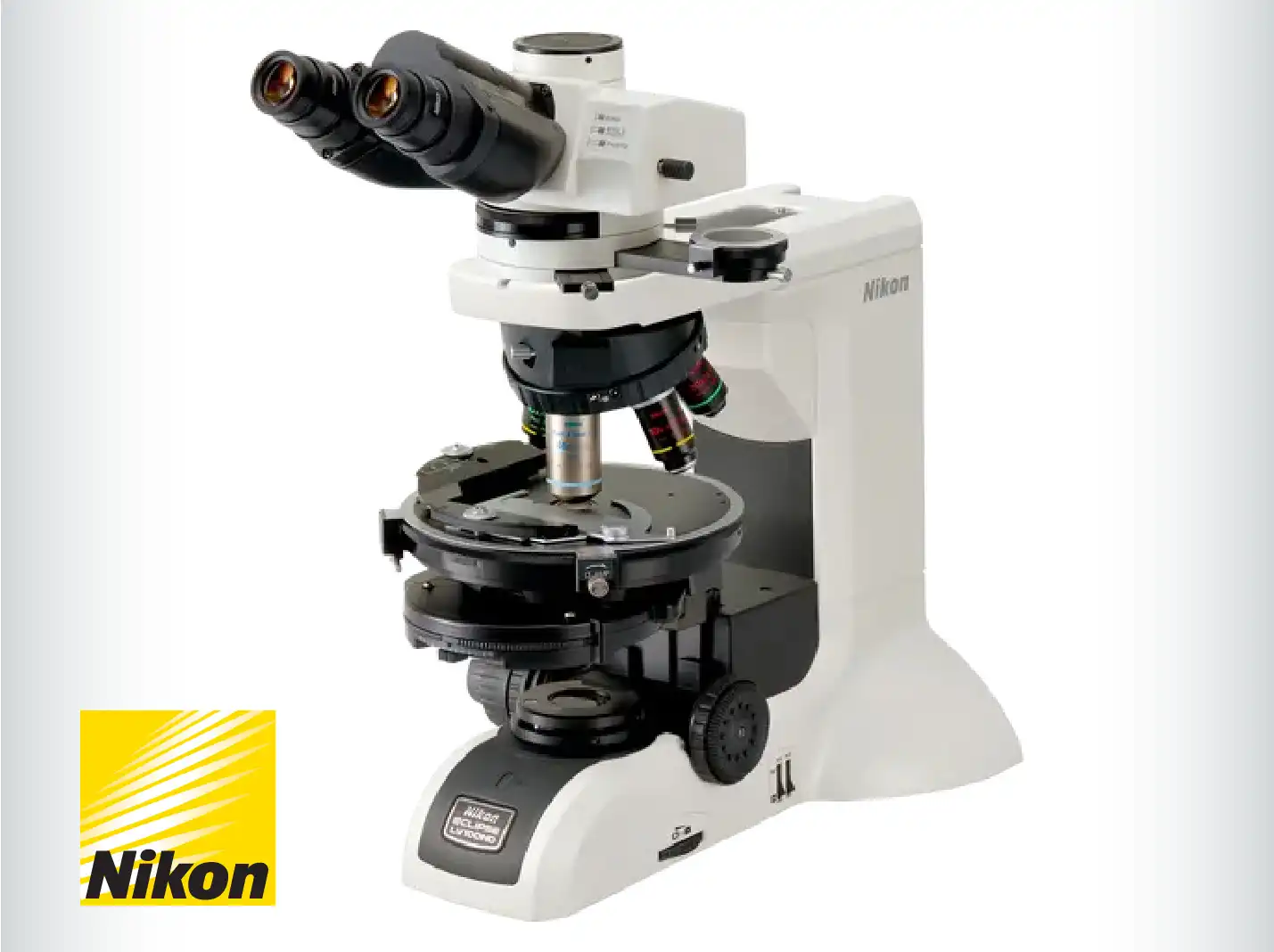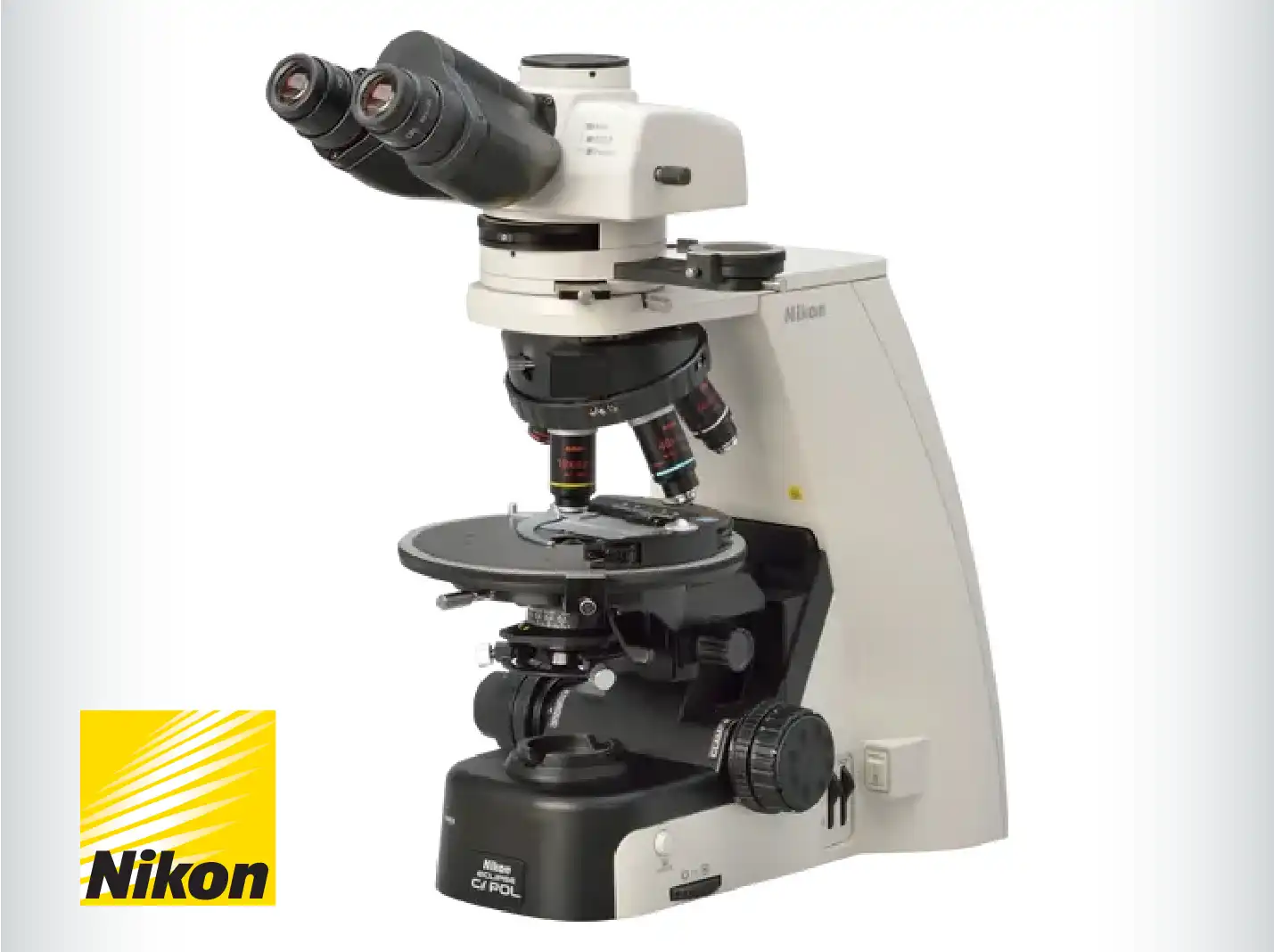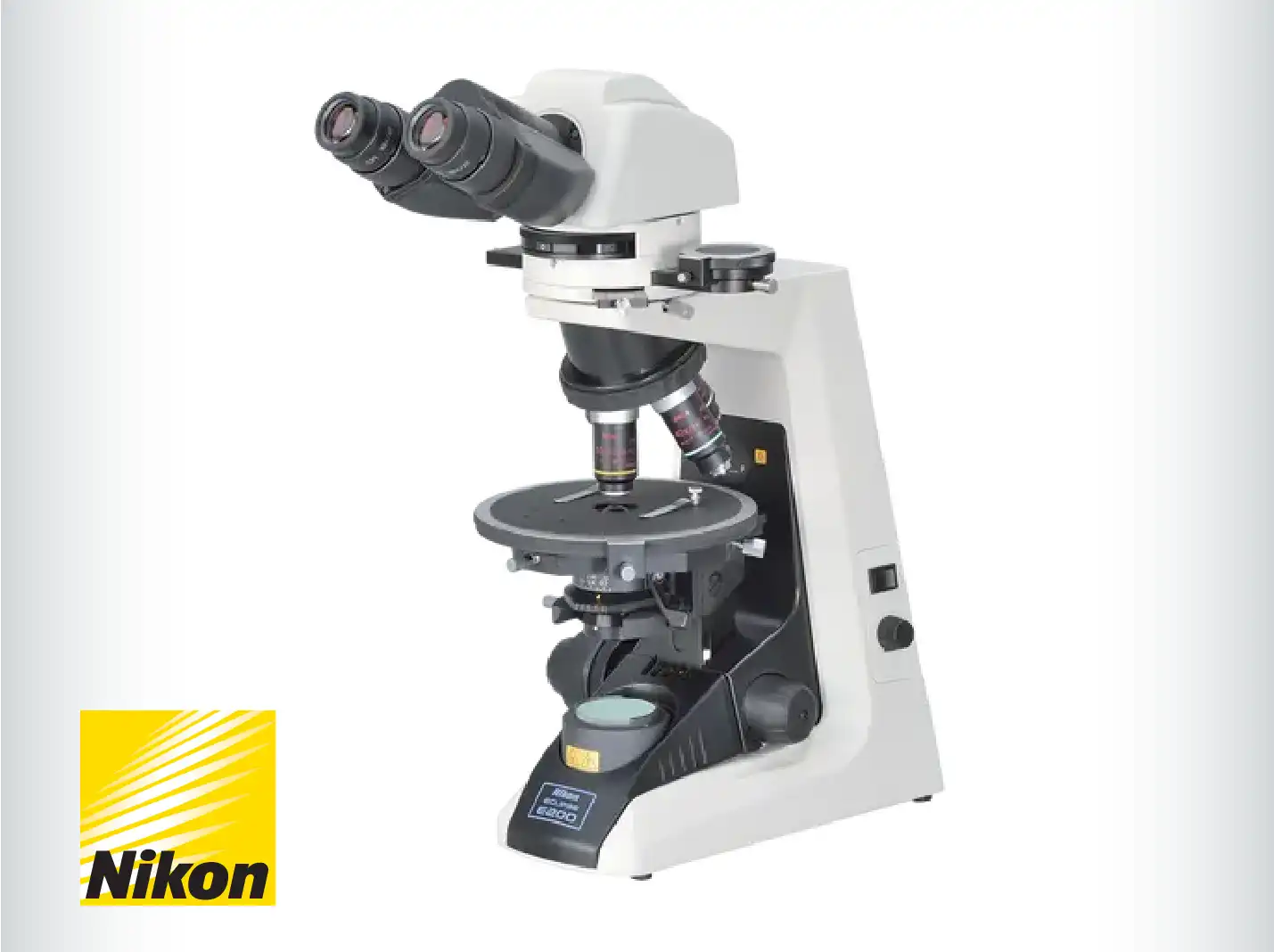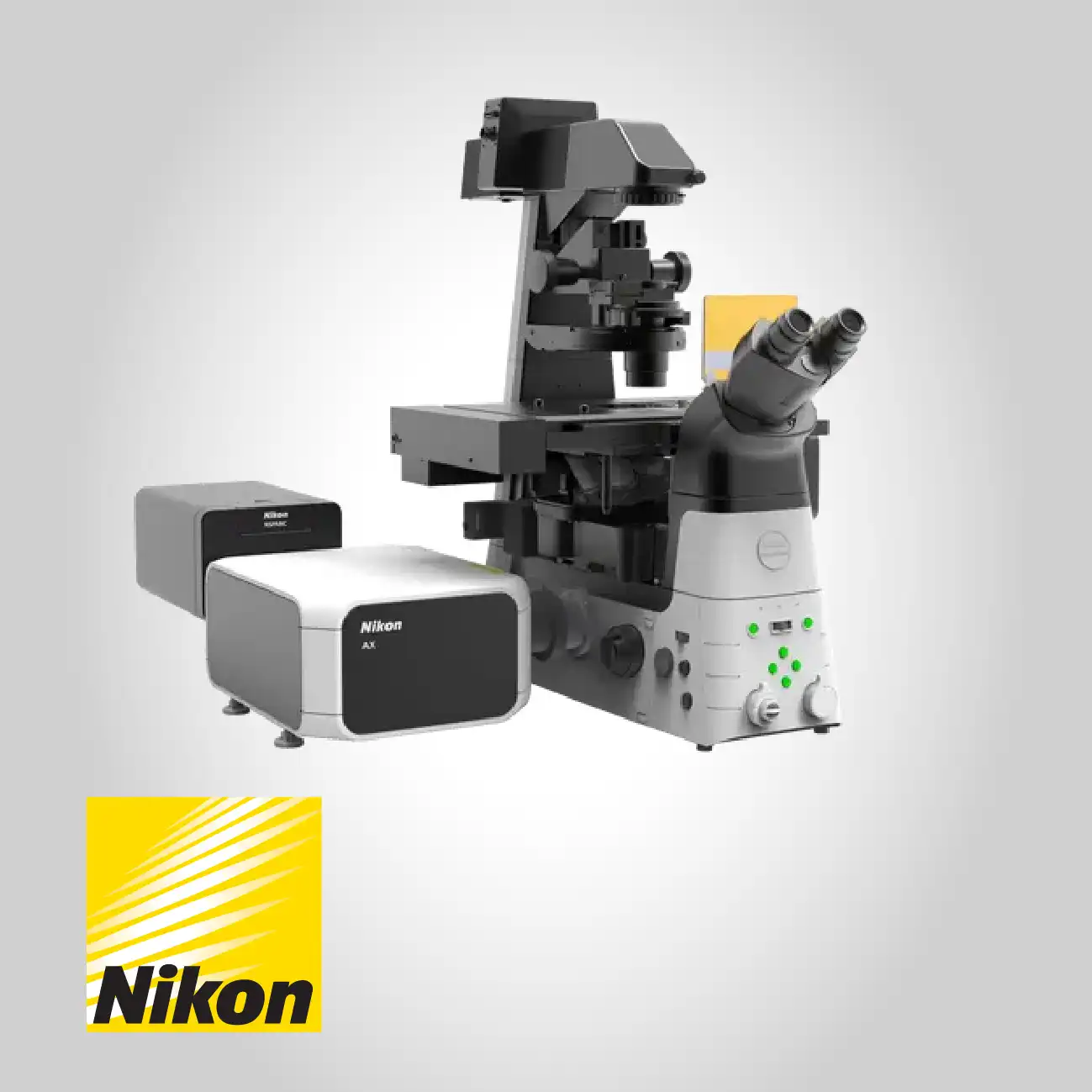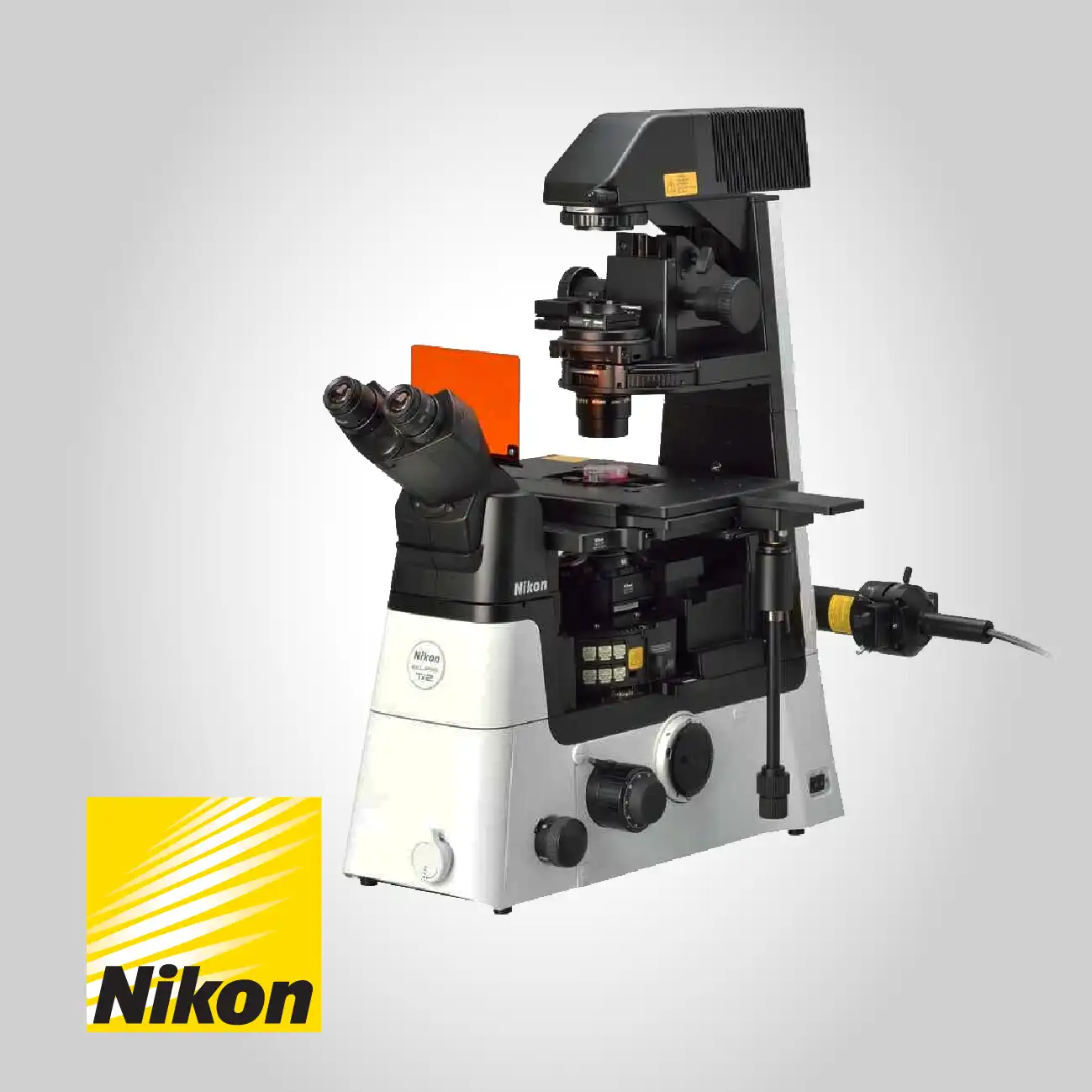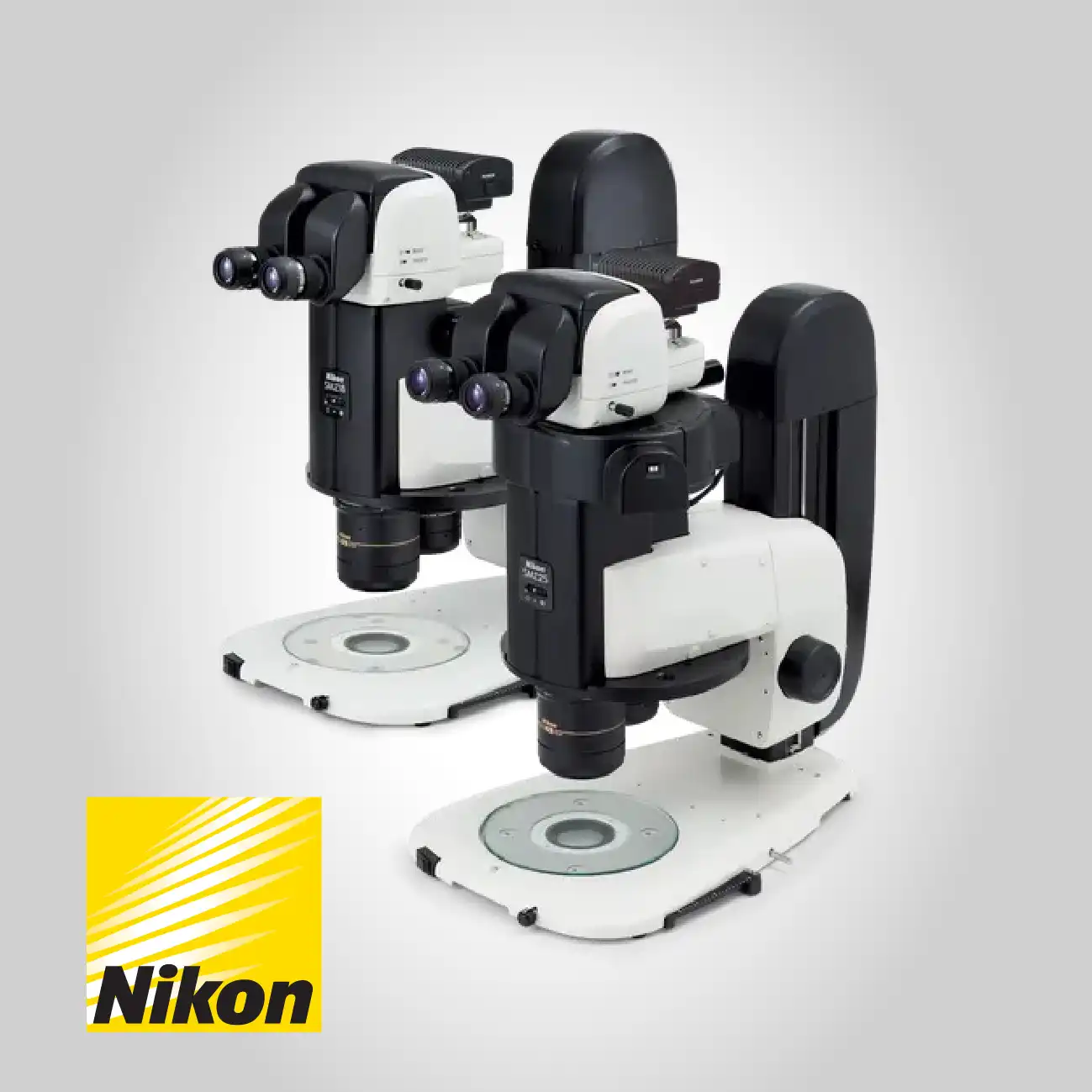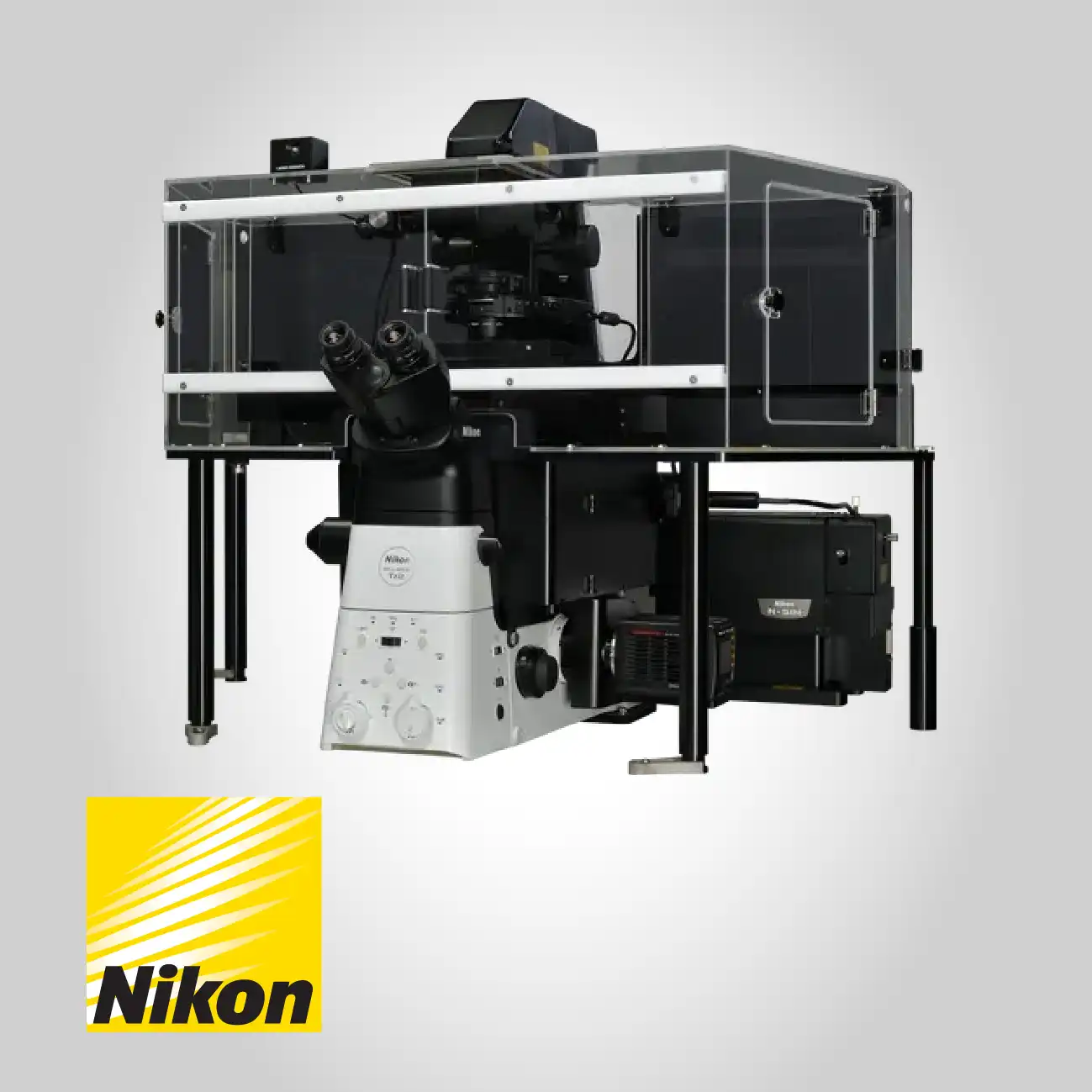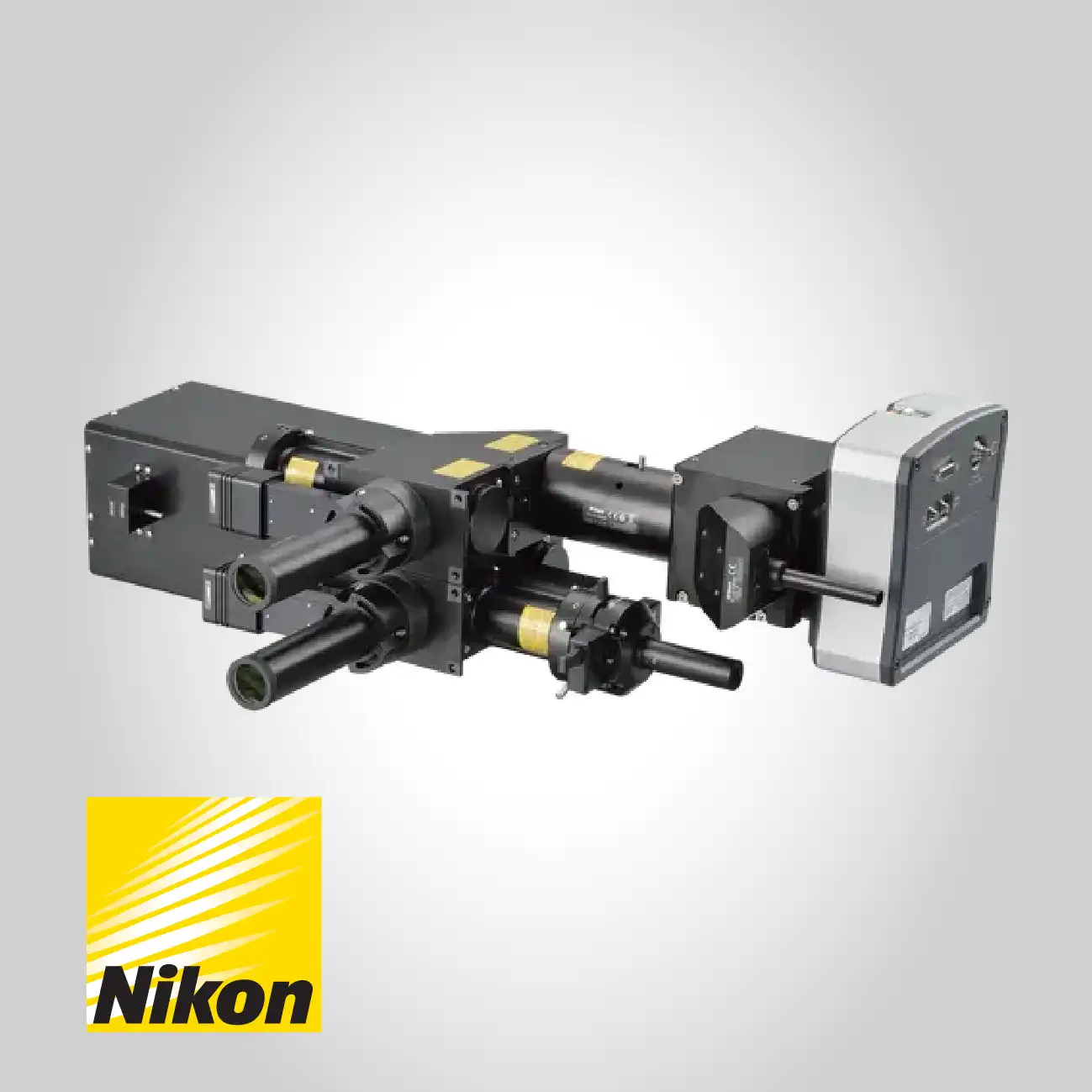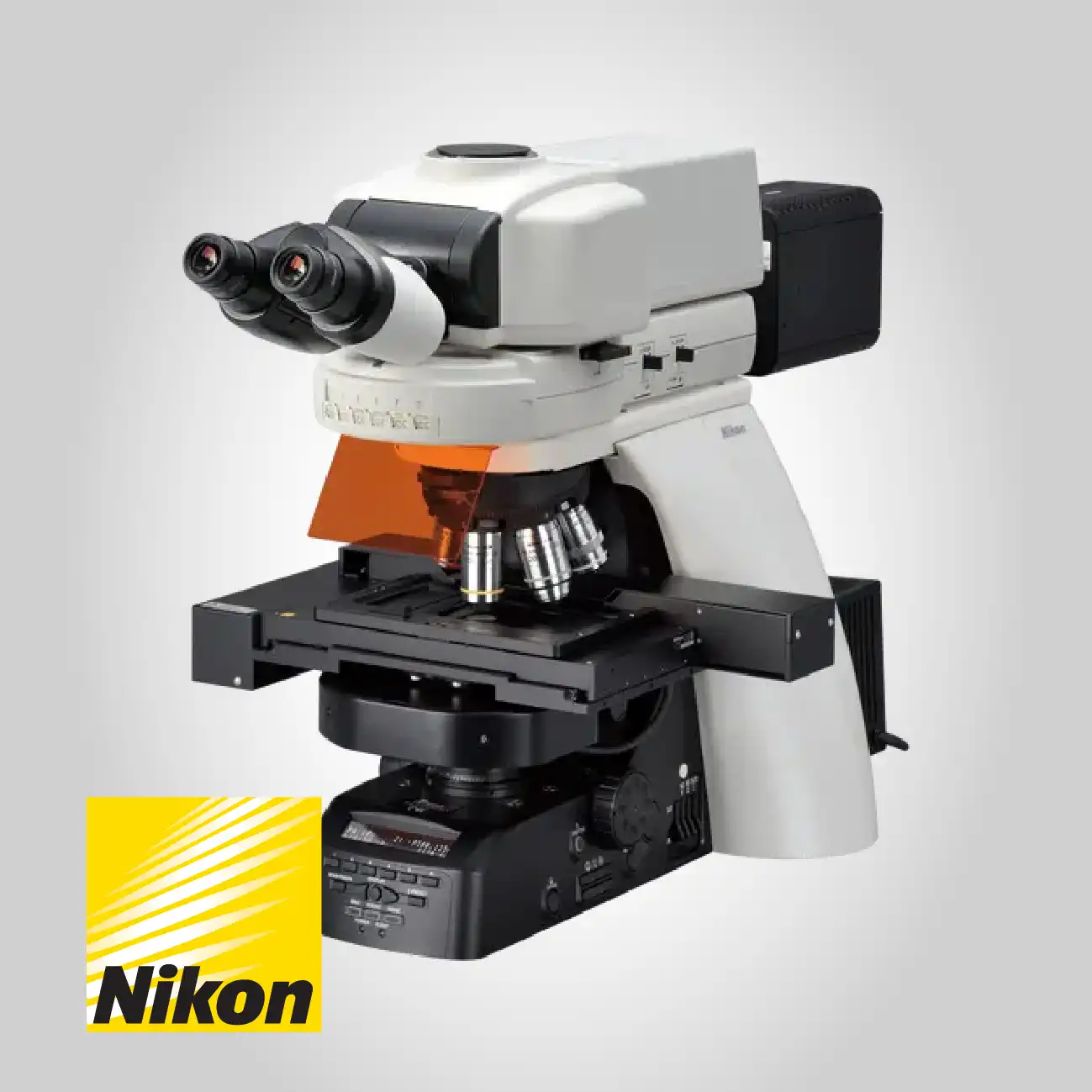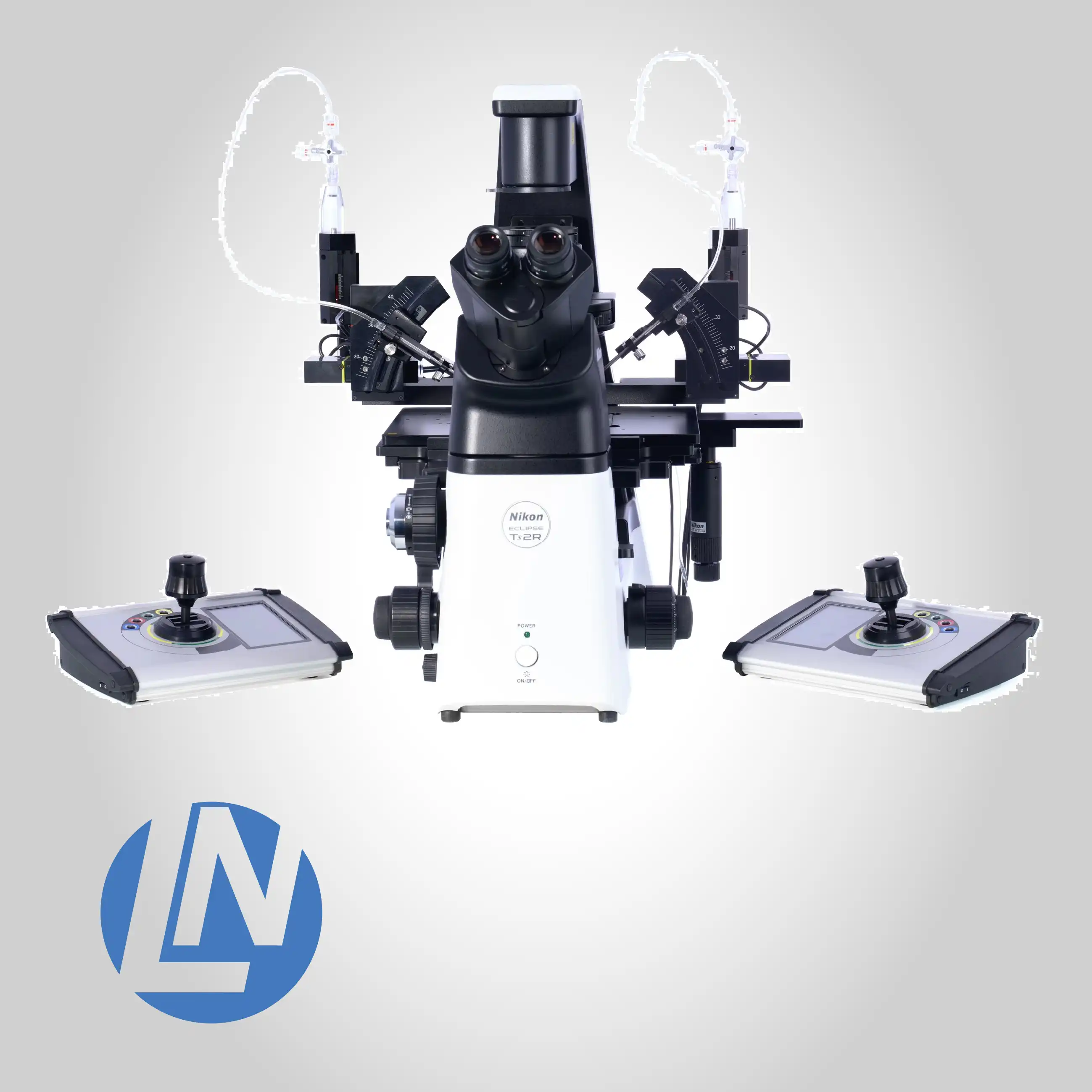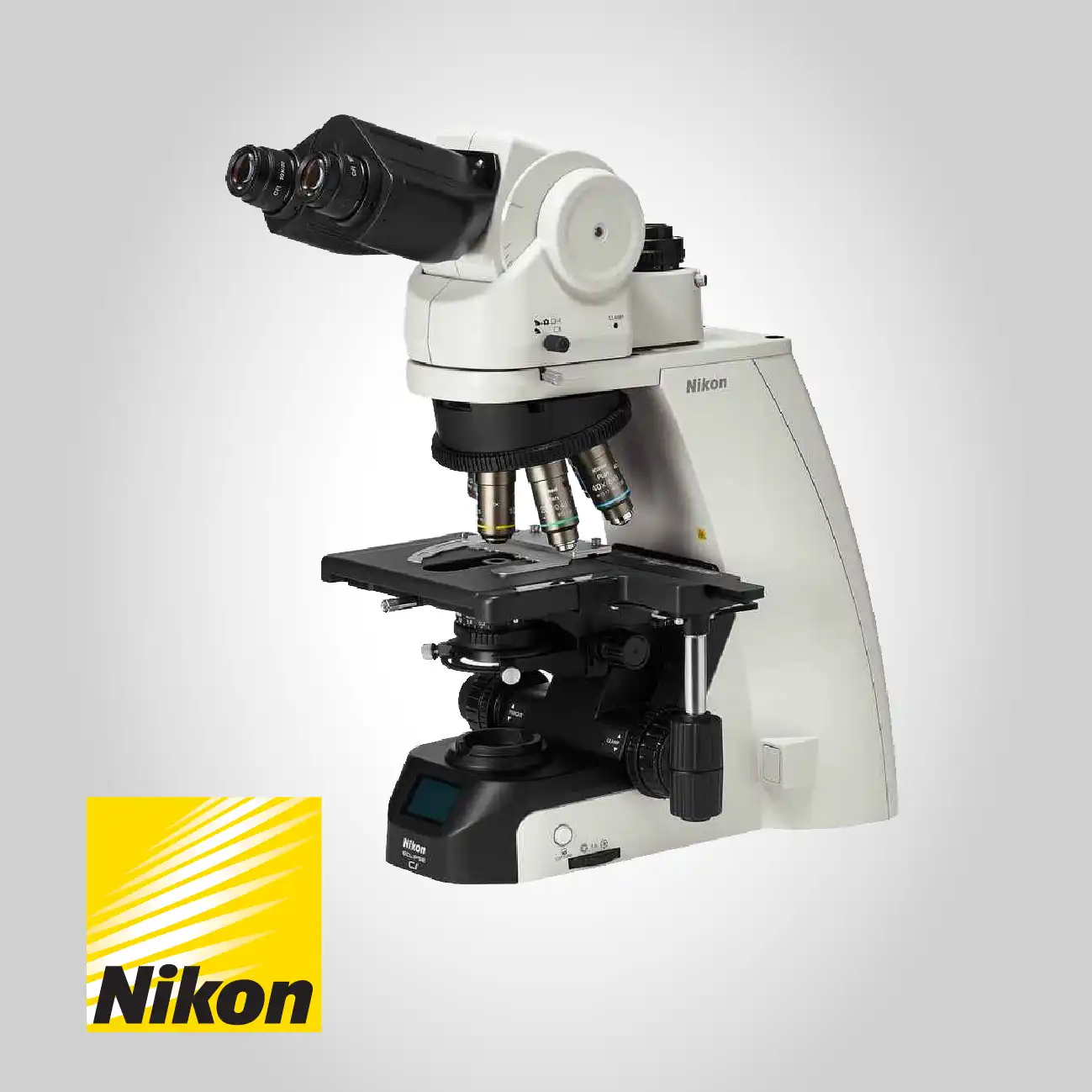
Home » Products » Microscopy & Imaging Systems » Microscopes & Optics » Nikon Polarizing Microscopes
Polarizing Microscopes
Superior Contrast for Precision Imaging
Nikon Polarizing Microscopes
Nikon’s polarizing microscopes—including the ECLIPSE Ci-POL and LV100N POL LED—are designed for revealing contrast in anisotropic and birefringent specimens, using high-quality CFI60 infinity optics, both diascopic and episcopic illumination, and exceptional stability. They feature uniform, low-heat LED or halogen lighting to minimize focus drift, ergonomic design for space efficiency, and user-friendly functions like a built-in capture button and 360° adjustable stages. These capabilities make them ideal for precise structural analyses—such as crystal behavior, embryo evaluation, or material assessments—in compact IVF and research lab settings.
In IVF and biomedical labs, one of the greatest challenges is analyzing specimens that appear nearly invisible under conventional brightfield microscopy. Anisotropic and birefringent materials—such as crystals, fibers, or cellular structures—often lack sufficient contrast, leading to misinterpretation or missed details. Nikon’s polarizing microscopes solve this by integrating high-precision polarizers and analyzers, which dramatically enhance contrast and reveal hidden structures. This capability ensures that embryologists and researchers can confidently distinguish fine boundaries, structural anomalies, or subtle birefringent properties that are otherwise overlooked.
Illumination quality is another common pain point—traditional halogen lamps generate excessive heat, which not only causes focus drift but also risks damaging sensitive biological samples. The LV100N POL LED and Ci-POL address this with Eco-illumination LED technology that produces stable, uniform light with minimal thermal output. With an impressive 60,000-hour lifespan, these LEDs drastically reduce the need for bulb replacements and maintenance downtime. For IVF labs, this means reliable, low-heat imaging conditions that safeguard embryo integrity while cutting long-term operational costs.
Operator fatigue is a significant problem in labs where long hours are spent at the microscope. Poor ergonomics can lead to neck strain, back pain, and decreased accuracy over time. Nikon’s polarizing microscopes address this through thoughtful design: low stage height reduces arm elevation, extendable eyepieces adjust to individual needs, and stage controls are intuitive and accessible. These ergonomic improvements allow operators to maintain a natural posture during extended embryo or material observations, resulting in reduced physical strain, fewer errors, and higher overall efficiency.
Color accuracy is another critical factor in both embryo imaging and material science. Even minor color shifts can alter diagnostic outcomes or lead to inconsistent results between operators. With Nikon’s CFI60 infinity optics, chromatic aberrations are minimized, and high-contrast imaging is maintained across magnifications. This means that subtle differences in sample appearance—whether in embryo cell boundaries or crystal orientations—are represented faithfully. The result is improved reproducibility, reduced diagnostic ambiguity, and greater confidence in critical evaluations.
Space is often limited in modern labs, especially IVF facilities with multiple instruments running in parallel. The Ci-POL has a compact footprint that makes it ideal for crowded environments without sacrificing performance. Despite its size, it integrates advanced features such as a built-in capture button and easy-to-use status indicators, streamlining workflows and reducing unnecessary movements. IVF labs benefit from a space-efficient yet fully functional solution that maximizes productivity without expanding physical infrastructure.
For quantitative studies, reproducibility is paramount. The LV100N POL LED offers a rotating stage with 45° click stops, a Bertrand lens, and compensator slots, enabling both qualitative and quantitative polarized light analysis. This allows IVF and research labs to capture precise polarization data, whether for evaluating crystalline structures, assessing embryo media, or conducting material science research. The ability to switch between observation and quantitative modes without extra equipment reduces complexity and cost.
High-throughput IVF labs demand durability and reliability in their equipment. Nikon polarizing microscopes are built with robust mechanical structures, including ceramic-coated stages and steel cross-roller guides, ensuring longevity under heavy use. Washable stage surfaces prevent contamination, a major concern when handling biological samples. This resilience reduces downtime, extends service life, and protects lab investments, making them an ideal choice for facilities processing large volumes daily.
Data documentation and traceability are increasingly critical in regulated environments. When integrated with Nikon’s imaging software, polarizing microscopes allow automated image capture, annotation, and data storage. This not only reduces manual reporting time but also ensures compliance with IVF documentation standards and research protocols. For clinics and labs, the result is streamlined reporting, higher transparency, and stronger data integrity—all vital for patient trust and scientific credibility.
Read more about Nikon Polarizing Microscopes here





